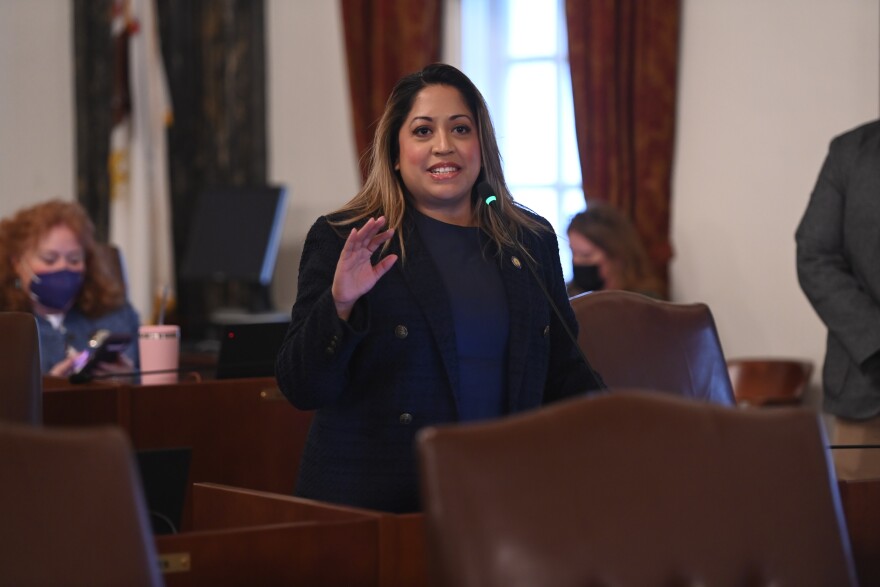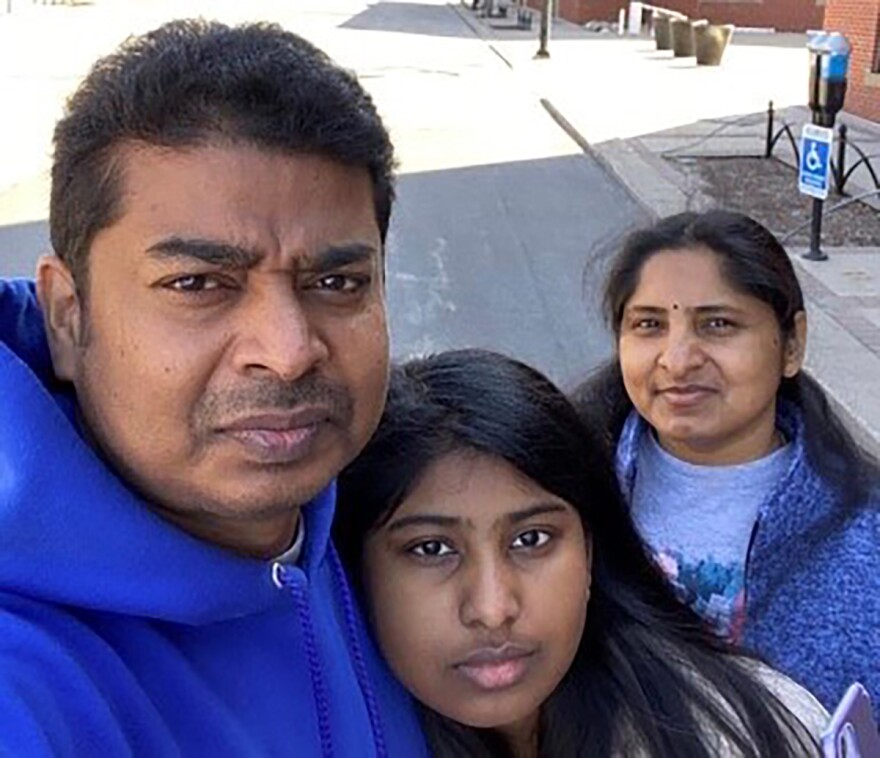There’s a lot at stake for Balraj Rajamanickam of Normal in the April 4 election.
Rajamanickam is a homeowner who pays taxes to Unit 5 schools. His daughter is a freshman in Unit 5. He cares deeply about the state of education in this community.
But he won’t be voting. He can’t legally do so because he’s here on a work visa.
“I feel very bad that there’s something which is going to impact my daughter’s life, and I have no control on it,” Rajamanickam said. “It’s really very bad.”
There’s been a lot of political energy spent getting people to vote for or against the Unit 5 tax referendum, aimed at addressing the district’s $12 million budget deficit. The district has already made budget cuts and has planned more, warning that they’re just the tip of the iceberg. Voters rejected the tax question once before.
Unit 5’s non-citizen stakeholders like Rajamanickam are largely left out of the public debate over the referendum — the outcome of which will impact them just like everyone else. Non-citizens can’t vote in Illinois elections, although there’s been some legislation in the works to change that.
Rajamanickam is from India. He’s lived in Bloomington-Normal since 2009 and is here on an H-1B visa, a temporary visa for highly-skilled foreign workers. He applied for a green card in 2014 and has been waiting ever since. Due to a per-country cap, the backlog of green card applicants from India is so long that — barring an overhaul of immigration law — Rajamanickam won’t get one in his lifetime. The same backlog means his daughter, who was born in India but came to the U.S. as a baby, may have to find another country to live in when she turns 21 and her immigration status changes.
Rajamanickam, who works as a computer programmer at State Farm, said he’d vote yes on the referendum if he could.
“Kids’ education is the most important thing we can give to them as parents,” said Rajamanickam, noting the importance of small class sizes. “Whatever it takes. Don’t worry about the budget or anything. Bring money from somewhere else and educate the kids.”
Rajamanickam said he knows a lot of other Indian immigrants who’d want to vote on the referendum if they could. He spoke to WGLT “so that people know that there are people who want to vote yes for this, but don’t have a chance to vote.”
It’s hard to pin down exactly how many people are in the same situation as Rajamanickam, but it’s likely in the hundreds, at least. There were about 7,000 foreign-born non-citizens (mostly Asian) living in McLean County as of 2021, according to the U.S. Census Bureau. Of those, about 850 families live in owner-occupied homes, meaning they’d be paying taxes to local schools, data show. The other two-thirds of foreign-born non-citizen households are renters, whose landlords likely pay their taxes with the proceeds of their rent and whose kids attend local schools, too.
None of them can vote. Some want to change that.
Legislation in Springfield
State Sen. Celina Villanueva, a Democrat from Chicago, has been working on a bill that would allow non-citizens to vote in school board elections. The latest version was introduced last month.
The bill is still a work in progress and is not expected to move toward passage this year, Villanueva told WGLT. Among the many logistical questions is how to protect any list of non-citizen voters from potential weaponization by anti-immigration advocates, or even a future presidential administration.

“We’re wanting to make sure that we’re moving a process forward that’s thoughtful, that’s taking the different circumstances into consideration, and wouldn’t put people in harm’s way,” Villanueva said. “I’d rather take my time and get it right.”
Also to be decided is whether the final bill would impact only Chicago residents or people statewide. Villanueva said she’s open to the statewide approach, although she said Chicago election officials may have more resources to get something like this started.
School board members, she said, have a “complete and utter say-so over the curriculum, the books, and the quality of education that (children) receive.”
“The reality is, this is the probably the most impactful form of government that we have. And there are people being left out of the conversation, and I’m trying to change that.”
The concept of non-citizen voting is in its infancy, even in larger U.S. cities, limiting what can be gleaned from past experience. Voters in San Francisco legalized non-citizen voting in local school board elections, though that’s faced legal challenges and Villanueva said turnout wasn’t as high as some hoped. A judge last year struck down a New York law that allowed non-citizen residents of New York City the right to vote in municipal elections for mayor and other local offices.
The Chicago-based Illinois Coalition for Immigrant and Refugee Rights (ICIRR) supports the idea.
“These are people who are our neighbors,” said Fred Tsao, ICIRR’s senior policy counsel. “They’re people who live in our communities. Many of them own homes. Many of them have families. Quite a number of them own businesses. They have a stake in their community. For those who are raising families, they have a stake in how their schools are run. They want to make sure — just as the rest of us do — that they have a voice in their children’s education.”
The bill’s supporters also need to nail down logistically how it would work. The latest version of the bill calls for the creation of a “voter registration affidavit.”
“Who’s gonna maintain the voter rolls? How’s registration going to work? Who’s going to administer this? Will it be school boards or local election authorities?” Tsao said.
Tsao reminded non-citizens that voting illegally is a deportable offense, but there are other options to stay engaged with local schools.
“Non-citizens, just like citizens, can attend school board meetings. They can participate in PTA (Parent-Teacher Association). We have any number of different avenues for having our say in the way that our schools are run,” Tsao said. “But school board referenda and school board elections are a very vital way in which people in communities can have their say. And unfortunately, people in our communities that are not yet citizens just do not have access to those avenues.”



